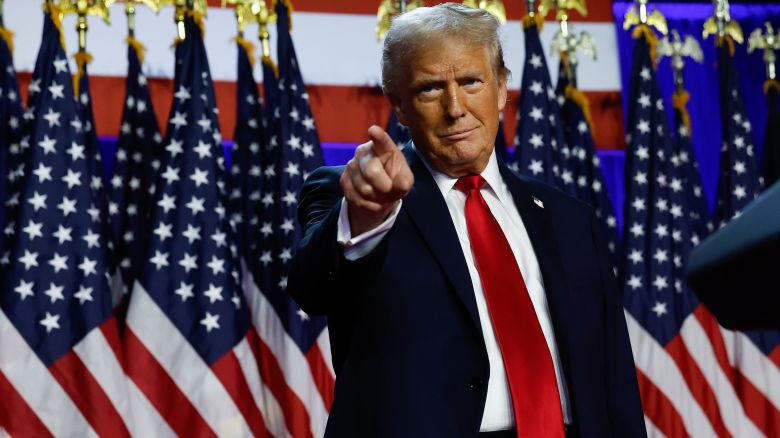Donald Trump is set to return to the White House as the 47th President of the United States after initially losing his reelection bid as a sitting President back in 2020.
The election victory represents a historic political comeback for Donald Trump after he had faced two impeachment saga and series of legal battles. As the numbers trickled in yesterday, leaders across the globe including Nigeria’s Bola Tinubu congratulated Trump for his re-emergence. Tinubu expressed his eagerness to strengthen the ties between Nigeria and the United States amid the complex challenges and opportunities of the contemporary world.
As Trump prepares to take the mantle in January 2025, the World and indeed Nigeria will feel the impact of his foreign, trade and economic policies. The policy direction of the new government will resonate beyond the shores of America into various parts of the world given the powerful nature of the US government.
Here are some of the possible policy directions that Trump might take and how they will likely impact the Nigerian economy;
- Advertisement -
America First
During his first term, Trump pursued a protectionist trade policy which sought to put American interest first in its dealings with other countries.
It saw the US prioritise domestic energy production, heavy tariffs on imported goods and lower lending rates. Trump’s America first policy threatened the new multi lateral world order while raising tensions with China and other countries.
A continuation of this policy is almost certainly going to happen in Trump’s Make America Great Again 2.0. If it does happen, it could affect potential capital outflow from the United Stated thereby reducing Nigeria’s FX inflows.
Also, placing a priority on domestic energy production could reduce the demand for oil and lead to a reduction in the global prices. This would affect Nigeria’s revenue inflow and compound the country’s foreign exchange volatility.
Trump’s America first policy also reduced US government’s global anti terrorism role as Trump sought to reduce overseas spending on wars and other commitments
- Advertisement -
The withdrawal of US from Afghanistan and threats to exit NATO all lend credence to Trump’s desire to reduce US involvement in global security financing.
If goes on with this, it could impact Nigeria’s war against Boko haram which has been heavily reliant on US support.
This could also change the dynamics of the Russian-Ukraine war which has seen Ukraine enjoy massive financial backing from the Biden administration.
Stronger Dollar
By placing priority on domestic production and local industry, the Trump government will ensure a stronger dollar. In fact, the currency will be strengthened further by tariffs on imported goods and waivers for exportation.
This will increase demand for locally manufactured goods in the US and boost the standing of the dollar against other currencies.
A stronger dollar makes it more expensive for struggling countries like Nigeria to meet its foreign exchange demands. This could strain the Central bank’s efforts in curbing inflation and stabilising the local currency.
In addition, a stronger dollar will hike Nigeria’s debt servicing cost even further as many of the country’s debt obligations are dollar-denominated.
Also, Nigeria’s dependence on importation of fuel, raw materials and other goods will compound the woes of the country as a stronger dollar will make it more expensive to import.
Immigration policy
Trump rode on a huge anti illegal migrant rhetoric during his first term. Throughout the 2024 campaign, he reiterated his position on curbing the number of migrants in the country and changing the modalities of US Citizenship.
A tight immigration policy in the US could hamper the ability of Nigerians to travel to the US for work, study and other purposes.
A reduction in the number of Nigerians could mean lesser diaspora remittances which will put more pressure on the already strained foreign reserve.
Nigeria has raked in over $20 billion annually from diaspora remittances, helping to offset the country FX shortages. A reduction in this inflow could reverse some of the growth made so far.
Buy American
This is also inline with Trump’s America first policy. It seeks to prioritise locally manufactured goods over imported ones.
It also seeks to reduce importation and raise tariffs for external goods. If Trump continues with this, it could have an impact on Nigeria-US trade relations and export earnings from oil and agricultural products.
Nigeria recoded a trade surplus with the US in the first half of this year with imports hitting 1.9 trillion Naira while exports rose to 3.1 trillion Naira. All these gains could be eroded with Trump’s ”Buy American” policy.
As America counts down to Trump’s second coming, Nigeria must brace up for the ripple effects of his trade, foreign policy and economic decisions.
Based on what has been said so far, Nigeria must start to reduce its over reliance on foreign remittances from the US, importation of goods and external borrowing.
Also, there must be concerted effort to support local industries, increase demand for domestic goods and reduce demand for the US dollar to prepare for the aftermath of Trump’s policies.










